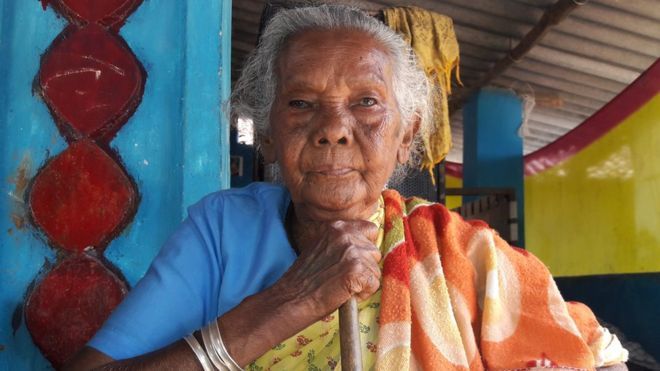Inspiring story - old women ended open defecation in her village
Published on by Water Network Research, Official research team of The Water Network in Social
Dhamtari became the first district in the central Indian state of Chhattisgarh to be declared free from open defecation. And the credit for that is being given to Kunwar Bai Yadav, a woman who claims to be 105, and sold her only assets - a few goats - to build a toilet at home.
 The BBC's Geeta Pandey visits her home to hear her inspiring story.
The BBC's Geeta Pandey visits her home to hear her inspiring story.
A mere 100km (60 miles) from Raipur, the capital of Chhattisgarh, is Kotabharri village where 18 families, displaced by a dam on the Mahanadi river, were settled in the late 1970s.
The small non-descript village seems to be an unlikely setting for a revolution and its oldest resident, Kunwar Bai Yadav, seems like an unlikely revolutionary.
But in the past year, Mrs Yadav has put her name - and that of her village - in bold letters on the state's journey towards becoming free from open defecation.
Today, she is a local celebrity, much sought after by her fellow villagers and senior government officials who describe her as their "mascot" in the campaign to end open defecation in the state.
Earlier this year, Prime Minister Narendra Modi bowed before her and touched her feet to express his appreciation for her work.
So how did Dhamtari, home to 800,000 people, get to this point? Ask this question of anyone in the state, and they point at Mrs Yadav.
Two years ago, Mr Modi's government launched the Swachh Bharat Abhiyan (Clean India Campaign) with a key aim to eliminate open defecation in the country by 2 October 2019 - the 150th birth anniversary of Mahatma Gandhi.
India was shamed into action when official figures showed that 550 million people - nearly half of India's billion plus population - defecated in the open. The fact that more people had access to mobile phones than toilets invited much ridicule about misplaced priorities.
The authorities began a massive campaign to encourage people to build toilets and government officials were sent into the remotest areas to tell people about the benefits of ending open defecation.
And that's how Mrs Yadav, who had for a century gone out in the nearby forests to defecate, heard about toilets last year for the first time in her life.
"The district collector was visiting the local school to give a speech. I also went along and there he talked about building toilets. Until then, I had no idea about toilets and never thought about it," she told me. "But what he said, set me thinking. It sounded like a good idea."
Mrs Yadav has had no formal education and in the absence of any birth certificate, it's impossible to corroborate her claim that she's 105, but her heavily lined face, stooped frame and failing eyesight are a testimony to the times she has lived through.
In recent years, she says she's been finding it difficult to do the daily trek to the forest for her ablutions and had fallen twice and hurt herself.
"I thought if I somehow built a toilet at home, it would save me a lot of trouble," she says.
"But I had no money so I started thinking about how I was going to pay for it. My only assets were the 20-25 goats I owned, so I sold seven of them for 18,000 rupees [$270; £222]. As I was still short of funds, my daughter-in-law who works as a daily-wage labourer pitched in and we managed to raise enough money to build a toilet," she explains.
Read this interesting story in detail at BBC here.
Taxonomy
- Hygiene Education
- Sanitation
- Human Rights
- Water & Sanitation
- Sanitation & Hygiene
- Water and Environment